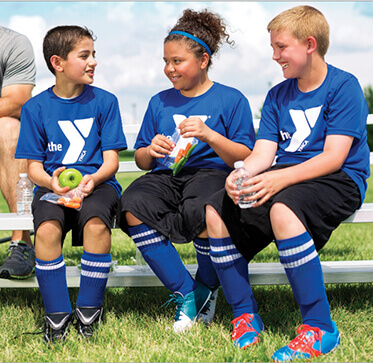The Science of Post-Match Recovery: Nutrition, Hydration, and Beyond

CRFC BLOGS
LATEST BLOGS & NEWSLETTERS
The Science of Post-Match Recovery:
Nutrition, Hydration, and Beyond

Nutrition and Hydration: The Foundation of Recovery
Hydration
Consuming an electrolyte-rich drink immediately after a match helps replenish lost fluids and electrolytes. Soccer post-game hydration supports muscle function and prevents cramps.
Immediate Nutrition (First 30 Minutes)
Foods like fruit smoothies, milk, yogurt with honey, nuts, and cottage cheese are ideal for quick nutrient absorption. These options provide a balance of carbohydrates, proteins, and healthy fats, aiding in the rapid restoration of glycogen stores and muscle repair. Such foods are considered some of the best post-game recovery food options.
Sustained Nutrition (2-4 Hours Post-Match)
Continuing to consume carbohydrates and protein-rich foods, such as supplemental protein bars and protein drinks, ensures ongoing recovery and energy replenishment. This approach is crucial for recovery after soccer game exertion.
Consistent Eating Schedule
Eating six balanced meals or snacks throughout the day maintains energy levels and supports continuous recovery. Before bed, a high-protein snack and tart cherry juice can further enhance muscle repair and reduce inflammation. This routine is an essential part of soccer game day nutrition.
Cold Therapy: Mixed Evidence with Potential Benefits
Full-body or Waist-High Cold Therapy
Immersion in cold water for 11 to 15 minutes at temperatures lower than cold tap water has shown some recovery benefits. These benefits may include reduced muscle soreness and inflammation, and faster recovery of muscle function. This technique is often considered in post-soccer game recovery routines.
Personal Experience and Anecdotal Evidence
Pre-workout ice baths (8 to 10 minutes) followed by an active warm-up, and post-workout ice baths (15 to 20 minutes) to the waist have significant benefits. This regimen seemed to reduce injury rate during college level compared to high school.
Stretching and Active Recovery: Limited Scientific Support
Static Recovery (Stretching in Place)
Some studies suggest that static stretching might be harmful by further stretching damaged tissues and sarcomeres, potentially causing additional damage.
Active Recovery (Light Exercise)
Engaging in light exercise within 24 hours of a match may offer cultural and team bonding benefits but lacks strong physiological evidence. In some cases, rest may be a better recovery strategy.

Compression and Water Therapy: Emerging and Anecdotal Insights
Compression Treatments
The use of compression stockings and other devices may aid recovery, though scientific evidence is not robust. Compression may help reduce swelling and improve blood flow.

Water Therapy
Controlled stretching and short water activities, such as treading water and corner-of-pool stretching, show limited scientific support. However, anecdotal evidence from the experience of soccer players suggests significant benefits. The frequent use of water stretching seems to enhance recovery and reduce muscle soreness.
Conclusion
FAQs
What is recovery nutrition for soccer?
What are the 4 key priorities for recovery nutrition?
The four key priorities for recovery nutrition are:
- Replenishing glycogen stores with carbohydrates.
- Repairing muscle damage with proteins.
- Rehydrating with fluids and electrolytes.
- Maintaining an overall balanced diet to support continuous recovery.
What is the role of nutrition in recovery after training and competition?
How do you hydrate for soccer?
What is a hydration break in soccer?

Did you find this useful?


